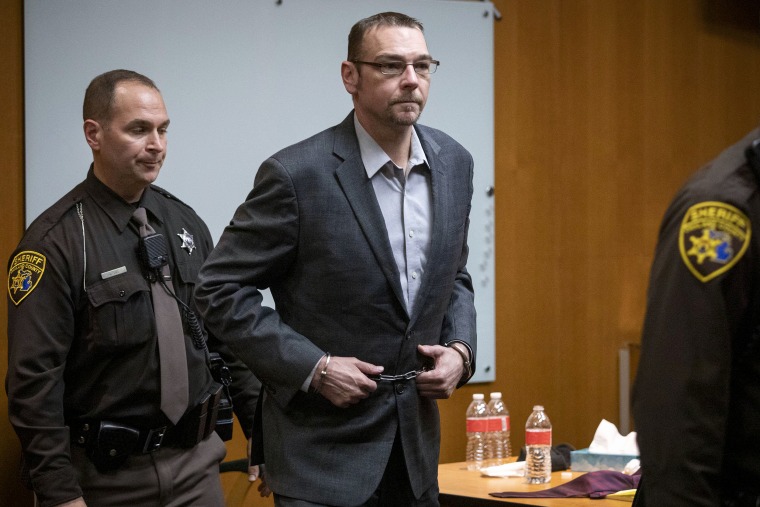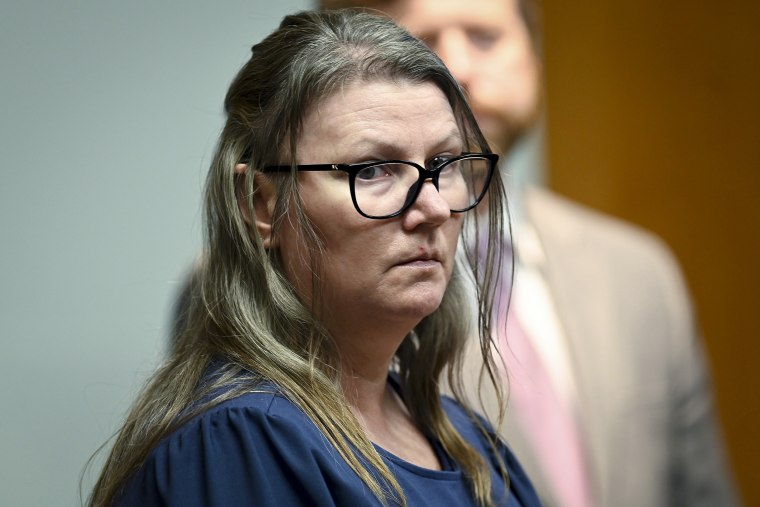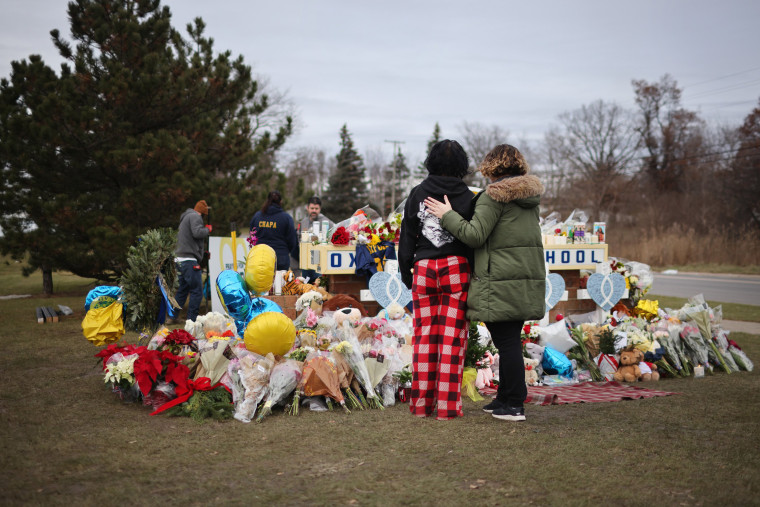The Michigan prosecutor who won convictions against the mother and father of teenage school shooter Ethan Crumbley said Friday her goal was not to ensure that the sins of other criminally convicted children are visited on their parents in court, but to prevent further gun violence.
“I hope it leads to more prevention of gun violence,” Oakland County Prosecutor Karen McDonald said. “I hope it leads to people taking more responsibility. I don’t want a situation where a lot of prosecutors are charging people or parents for things that their children did, or are doing.”
But the twin convictions of James and Jennifer Crumbley — the first parents to be held criminally responsible for a mass shooting committed by their child — create a legal precedent that could lead to prosecutors to bring more cases against parents for the actions of their children.

Lawyers are “trained to argue cases on precedent,” Ekow Yankah, a law professor at the University of Michigan, told NBC News. “And I can see prosecutors using this in cases that won’t get this kind of national attention.”
“This case was particularly terrible and had a unique set of facts,” Yankah said of the 2021 mass shooting in a Detroit suburb that left four Oxford High School students dead. “I don’t know to what extent it will open the floodgates to similar kinds of prosecutions, but precedent has its own power and law.”
On Thursday, a jury in Pontiac, Michigan, convicted Crumbley’s father, James Crumbley, of involuntary manslaughter. His wife, Jennifer Crumbley, was convicted in February of the same charge.
The Crumbleys each face up to 15 years in prison for each of four counts of involuntary manslaughter. In Michigan, felony sentences that rise out of the same event must run concurrently, so the most the judge can impose is 15 years in total. They are scheduled to be sentenced on April 9.

In both trials, prosecutors made the same argument: While neither James nor Jennifer Crumbley knew their son Ethan was plotting a deadly attack at his high school, they both failed in their legal responsibilities to help prevent it.
Crumbley, who was 15 when he opened fire at Oxford High School, pleaded guilty as an adult and was sentenced in December to life in prison without the possibility of parole. In the massacre of his classmates, he used a 9 mm Sig Sauer that his father had given him as a present.
Yankah said the verdicts are a “warning” to parents like James and Jennifer Crumbley, who failed to keep a deadly weapon out of their son’s hands.
Michigan attorney Lisa Baratta, who in the 1990s represented one of the first couples to be charged with violating a local parental responsibility ordinance, believes the Crumbley verdicts are going to spark an onslaught of “parental prosecutions.”
“Going forward, when a juvenile commits a crime, the prosecutor must consider if the negligence of the parents was a contributing factor,” she said in an email.
The couple Baratta’s law firm represented in 1996 was convicted of violating an ordinance in the town of St. Clair Shores that required them to “exercise reasonable control” of their children. In this case, their 16-year-old son was arrested for burglary, selling marijuana and other offenses. They were required to pay a small fine. Baratta said the conviction was later overturned on appeal.
Following the convictions of James and Jennifer Crumbley, it will be harder for other parents with troubled children to avoid prosecution, and parents will have to be hypervigilant to keep track of their children’s behavior, Baratta said.
“Parents will need to keep tabs on their child’s mental health, friend group, social media presence, etc.,” Baratta wrote. “Responsible parents already do these things. The concern is that the definition of ‘responsible’ will get blurred and innocent parents will be charged.”
A parent might not always be aware of everything going on in their child’s personal life but can be opened up to possible prosecution for that child’s actions, said Jeffrey Swartz, a former county judge in Florida and a professor at Cooley Law School in Michigan and Florida.
“If I’m a parent who owns a firearm or any other serious weapons, anything deemed a deadly weapon, if I owned anything like that, I would have second thoughts about anything in my home,” Swartz said.
Parents who own firearms in Michigan, where a safe gun storage law went into effect this year, will now be held to a strict standard to ensure those weapons are secure, Swartz said.
Though the Crumbleys were charged before the Michigan law was introduced, the prosecutors in the Crumbley case showed that parents can be held responsible for a child’s crimes. This can open the door for other prosecutors to go after parents for crimes committed with other kinds of weapons, Swartz said.
“It’s a dangerous precedent if prosecutors try to follow it, because they don’t have to limit it to guns,” Swartz said. “Maybe a child has hunting knives. Maybe a baseball bat. And maybe it doesn’t have to occur in a mass killing.”












